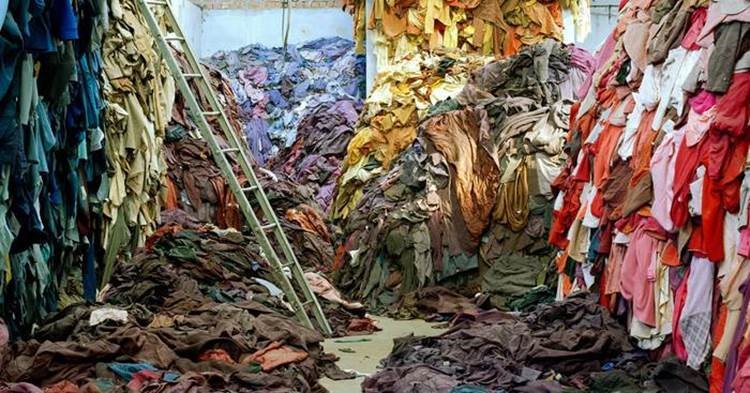Fast Fashion
Did you know “Polyester fleece jackets release an average of 1.7 grams of plastic microfibres each time they are washed.”
It’s facts like this that really make you realise the invisible damage we can still be doing to the planet. You proactively go out of your way to not purchase the shower gel in a plastic bottle, pick the loose veg rather than the bagged stuff, whilst all the while washing your favourite new jacket is adding to the ever growing plastic problem. The fashion industry needs to take a step back and address the issues.
Upstream Printing are a Cornwall based printing company that has focused primarily on the element of sustainability. We are trying to reduce the impact of textiles and fast fashion and are urging our customers to do the same. For a very small increase in cost you can use a product that is sustainable, organic and produced under the Fair Wear Foundation Guidelines. A product that you can feel good about, shout about, wear comfortably, wash and more than likely outlast anything that you have previously purchased.
Our sister company My School Hoodie, produce sustainable clothing and specialise in School Leavers Hoodies, University Leavers Hoodies, Primary School Hoodies and Ski Trip Hoodies. We produce every clothing order, start to finish on our premises. Using our experience in both design and production, we can get your school set up quickly and efficiently, with no extra markups from outsourcing.
We stumbled across an article in the Guardian and felt it completely hit the nail on the head.
” It was probably the only time a 93-year-old has stolen the show at Glastonbury’s Pyramid stage. Sir David Attenborough had important things to say when he warmed up for Kylie Minogue last month. After showing scenes from Blue Planet 2, the wildlife series credited with inspiring a sea change in attitudes towards plastics pollution, the broadcaster thanked festival goers and organisers for banning single-use water bottles. “This great festival has gone plastic-free,” he said to cheers. “Thank you! Thank you!”
Kylie’s crowd was right to feel virtuous – single-use plastic is an oil-derived menace to marine life – but how many paused to look down at the elastic in their waistbands, the polyester in their T-shirts and the nylon in their shoes? Plastic in what we wear may be less visible than it is in bottles or straws, but it is no less toxic. Yet somehow we have woven it so tightly into our throwaway society that we barely notice it, even when it is on our own backs. Now there are moves – at the top and bottom of a complex global supply chain – to do something about it.”
We’re all guilty of it. Maybe even more so now that we’re not visiting the high street to browse and purchase. It takes seconds to load up your favourite website, add a lorry load to your basket and it arrives at your front door the very next day. Effortless. But just where have those garments come from? What conditions were they produced in?
The Fair Wear Foundation started back in 1999 and has built an incredible initiative in that time. They perform factory audits, training and performance checks to ensure that workers right around the world are met.
Its time to not only reduce the single use plastic in our lives, but take a look at the clothes on our back!

